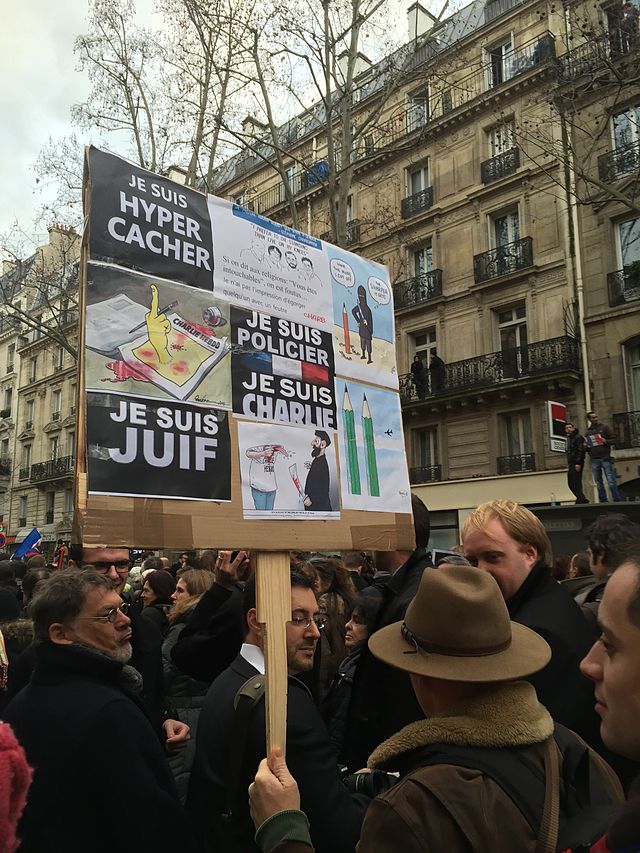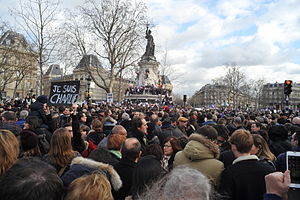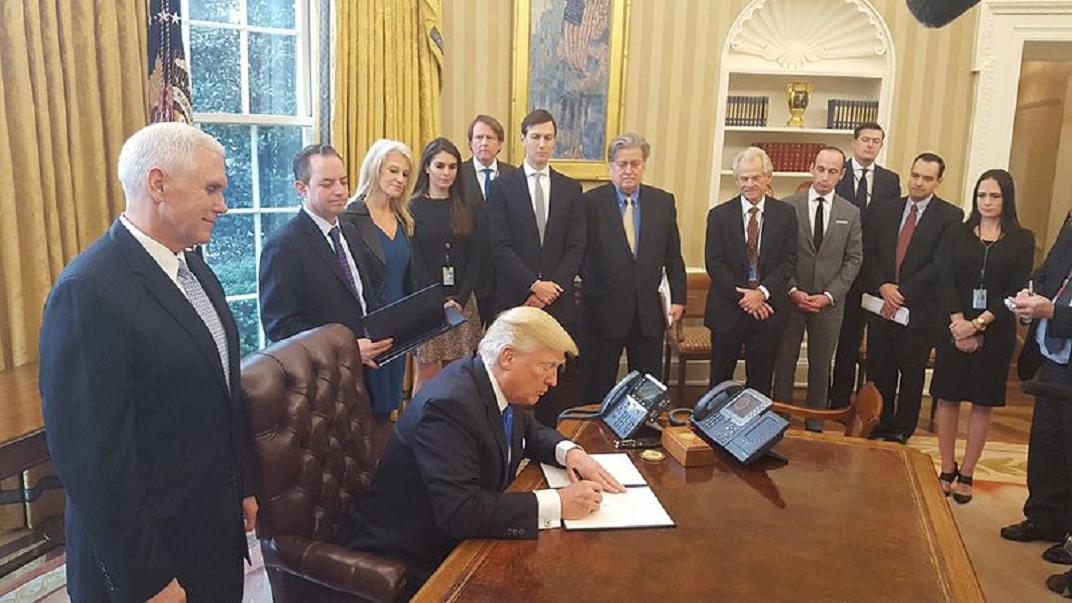The pen is still mightier than the sword according to the 1.6 million people who attended the Paris Unity March on January 11. The death of 12 members of the satirical magazine Charlie Hebdo, and the murder of a further five French citizens by Islamic terrorists, provoked a massive national unity march which was attended by over 40 world leaders. It was the day France united to reaffirm the ideals that their republic was built upon- liberty, equality and fraternity. The phrase ‘Je Suis Charlie’ has been echoed in the world press and on social media, as millions of people expressed their support for France and more fundamentally, the freedom of speech.
 No amount of mockery or criticism ever justifies the murder of another human being. In this aspect, the extremists and others who supported the mass murder of the Charlie Hebdo employees are fundamentally wrong. But there was something amiss with the Paris Unity March. Perhaps it was the presence of Israeli PM Netanyahu, who has overseen the expansion of the Israeli state into the West Bank and the displacement of Palestinians, or other figures from controversial states such as Turkey, Egypt and Russia. Many have pointed out that the absence of a major US representative was disconcerting. Many have also framed the march as a stand against Islam, rather than a platform for the promotion of freedom of speech, revealing a dark undercurrent of rising Islamophobia in the West.
No amount of mockery or criticism ever justifies the murder of another human being. In this aspect, the extremists and others who supported the mass murder of the Charlie Hebdo employees are fundamentally wrong. But there was something amiss with the Paris Unity March. Perhaps it was the presence of Israeli PM Netanyahu, who has overseen the expansion of the Israeli state into the West Bank and the displacement of Palestinians, or other figures from controversial states such as Turkey, Egypt and Russia. Many have pointed out that the absence of a major US representative was disconcerting. Many have also framed the march as a stand against Islam, rather than a platform for the promotion of freedom of speech, revealing a dark undercurrent of rising Islamophobia in the West.
France is still recovering from the extremist attacks that killed 17 French citizens. The Charlie Hebdo attack has been a blow to national security much in the same way that 9/11 affected the American psyche. Vulnerability and a fear of the unknown has spread across the country. In reaction to the attacks, most major European nations have vastly increased security measures. France has posted over 10,000 troops to protect major landmarks, Jewish schools, and places of worship. It has also approved a €493 million counter-terrorism plan that will see an additional 2,600 security posts added for intelligence gathering, and the installation of new technologies to combat terrorism within the nation. Other European nations, including Belgium, have followed suit by increasing security measures and spending, and tightening surveillance.
The American government apologized for its absence from the Paris march. Secretary of State John Kerry went to Paris soon after the march to ‘give a big hug’ to the leaders of France. While the US failed to give a reason for its absence, we can speculate that the fact that the march was held with just 36 hours notice may have played a part in the absence of a major American representative. While the US has been in full support of France throughout its ordeal, it may have inadvertently distanced itself from the undercurrent of Islamophobia which permeated the march.
‘Je Suis Charlie’ has only aided Al Qaeda in pushing the ‘us’ versus ‘them’ dialogue which has helped the recruitment efforts of Islamists in Europe. By venerating Charlie Hebdo, European nations have helped to ostracize their Muslim minorities. Hebdo’s newest issue, featuring a cartoon depiction of the Prophet, has sold well over 3 million copies, far beyond their usual 60,000 copy publishing run. Muslims across the Middle East are outraged that Hebdo has again insulted their spiritual icon. European Muslims have been quick to state that they do not support the terrorist attack against Charlie Hebdo, but that they also do not support the mockery of their Prophet. In a press statement to journalists, Pope Francis reacted to the Charlie Hebdo attacks by stating, “You cannot provoke. You cannot insult the faith of others. You cannot make fun of the faith of others.” In effect, Pope Francis told the world that a little bit of respect for the ideals of others is essential to an inter-faith dialogue and global peace.
Unlike the Pope’s message which called for respect of all the world’s religions, the Paris Unity March has only helped to create increased tensions and distance between the Muslim and non-Muslim populations of Europe, in effect playing into Al Qaeda’s narrative of the European Muslim as the ‘outsider’. This issue has only exacerbated a growing Islamophobia across Europe. Far right political groups such as the UK’s ‘English Defense League’ , Germany’s PEDGIDA, and Greece’s Golden Dawn party have been on the rise and use the ‘Islamization of Europe’ to justify their racism and hate-filled propaganda.
The Paris Unity March also highlighted the hypocrisy of a ‘march for freedom of speech’ by including leaders of nations that ranked very low in the 2013 Reporters sans Frontieres league table of respect for press freedom. Representatives from nations like Turkey (154th out of 179) and Russia (148th) marched proudly down Parisian streets trumpeting the right to free speech. Also in attendance was Israeli PM Netanyahu, who approved further Israeli expansion into the West Bank with the creation of 1,500 housing units, and advocated for a military strike against Iranian nuclear installations. These actions provoked the ire of President Obama, and came under heavy criticism by the international community.
The 1.6 million Paris Unity marchers attempted to come to terms with the violence they had witnessed just days earlier. They marched to re-affirm their national commitment to liberty, equality and fraternity. But in doing so, they also alienated some members of the Muslim community who perceived the marches as anti-Muslim. Islamophobia is on the rise in Europe, and the continent faces a crossroads–Europe must decide whether it is to be a pluralistic society founded on the recognition of all cultures and religions, or one which will ostracize the millions of Muslims who call Europe home.




